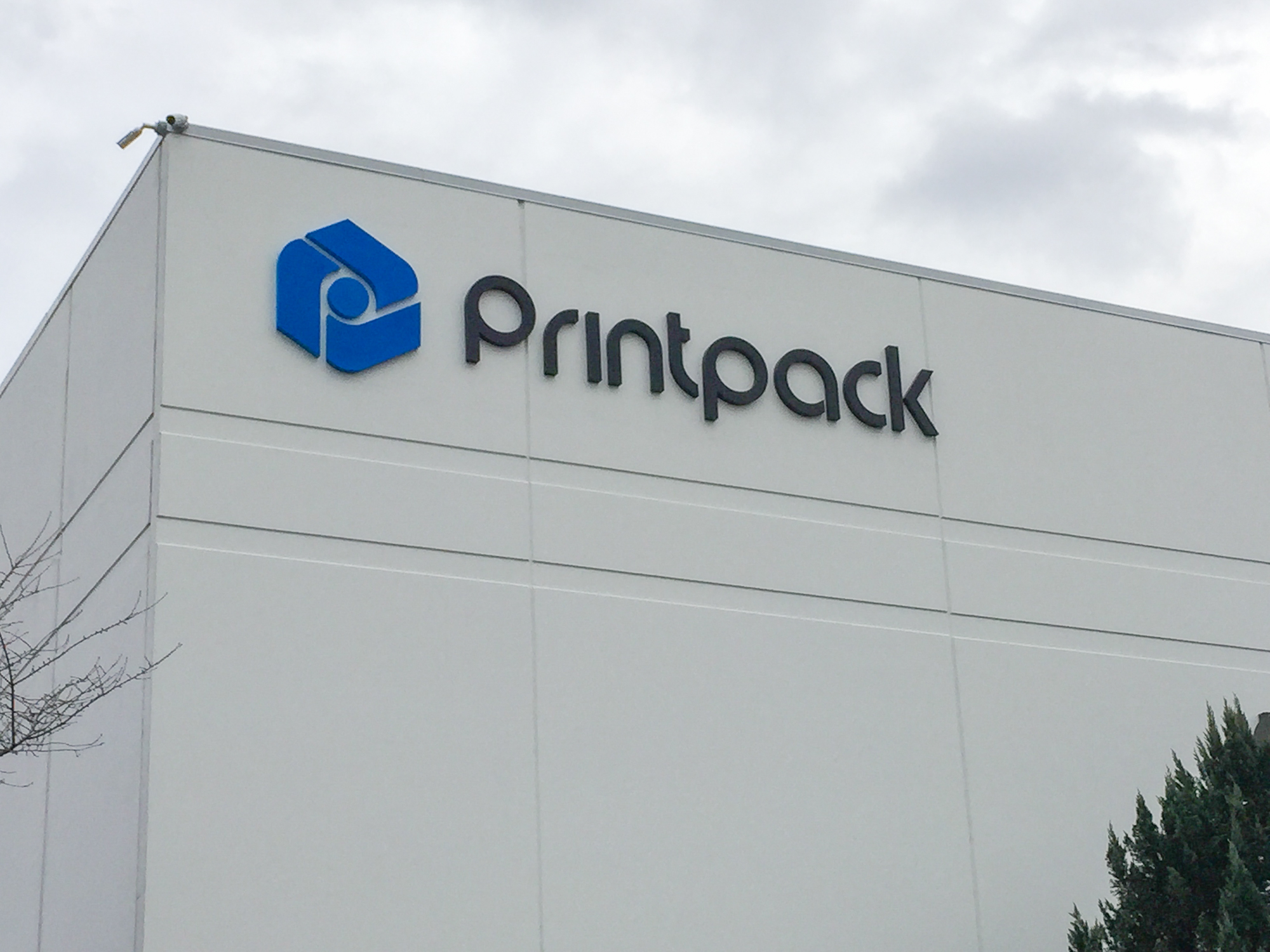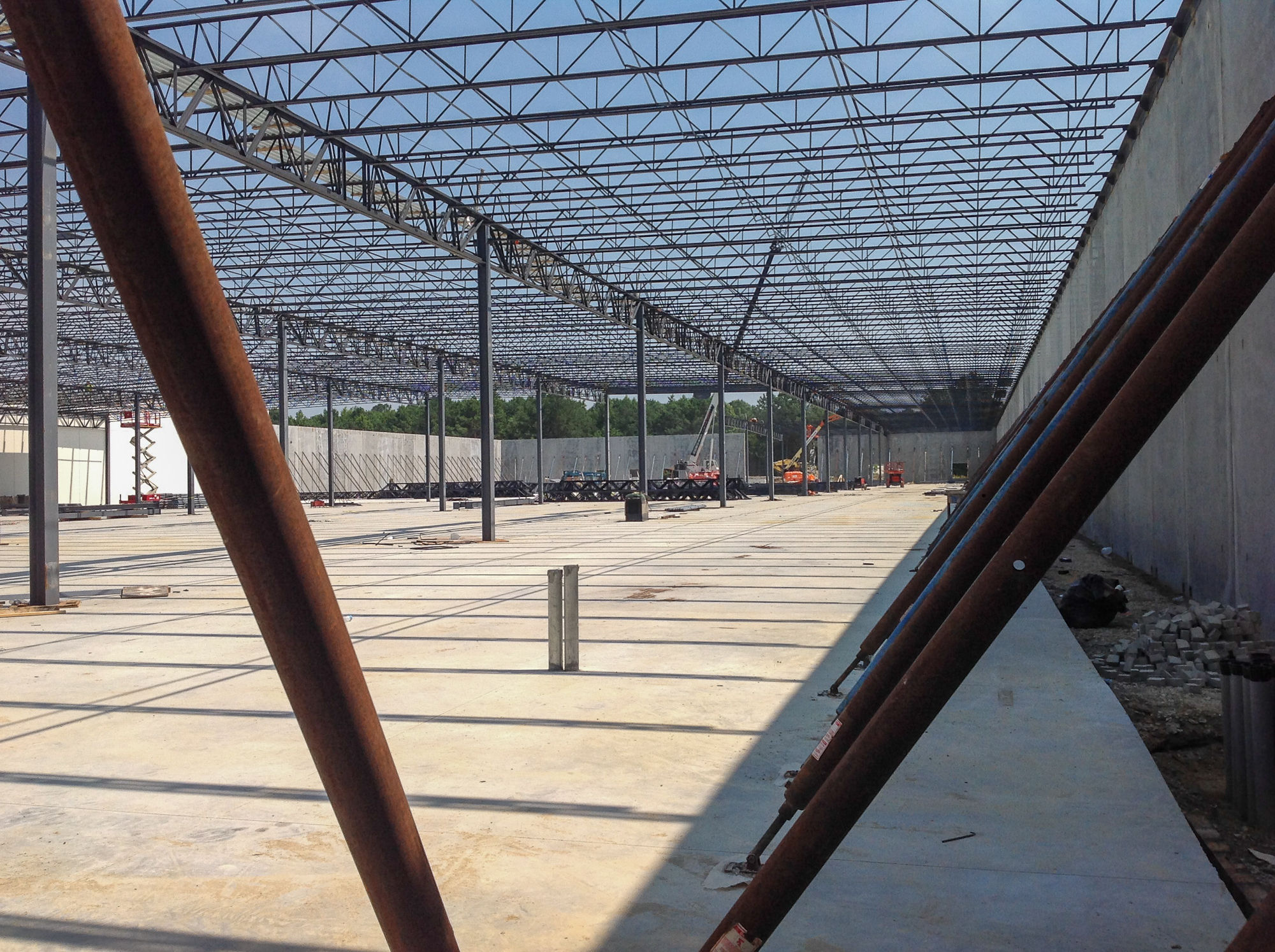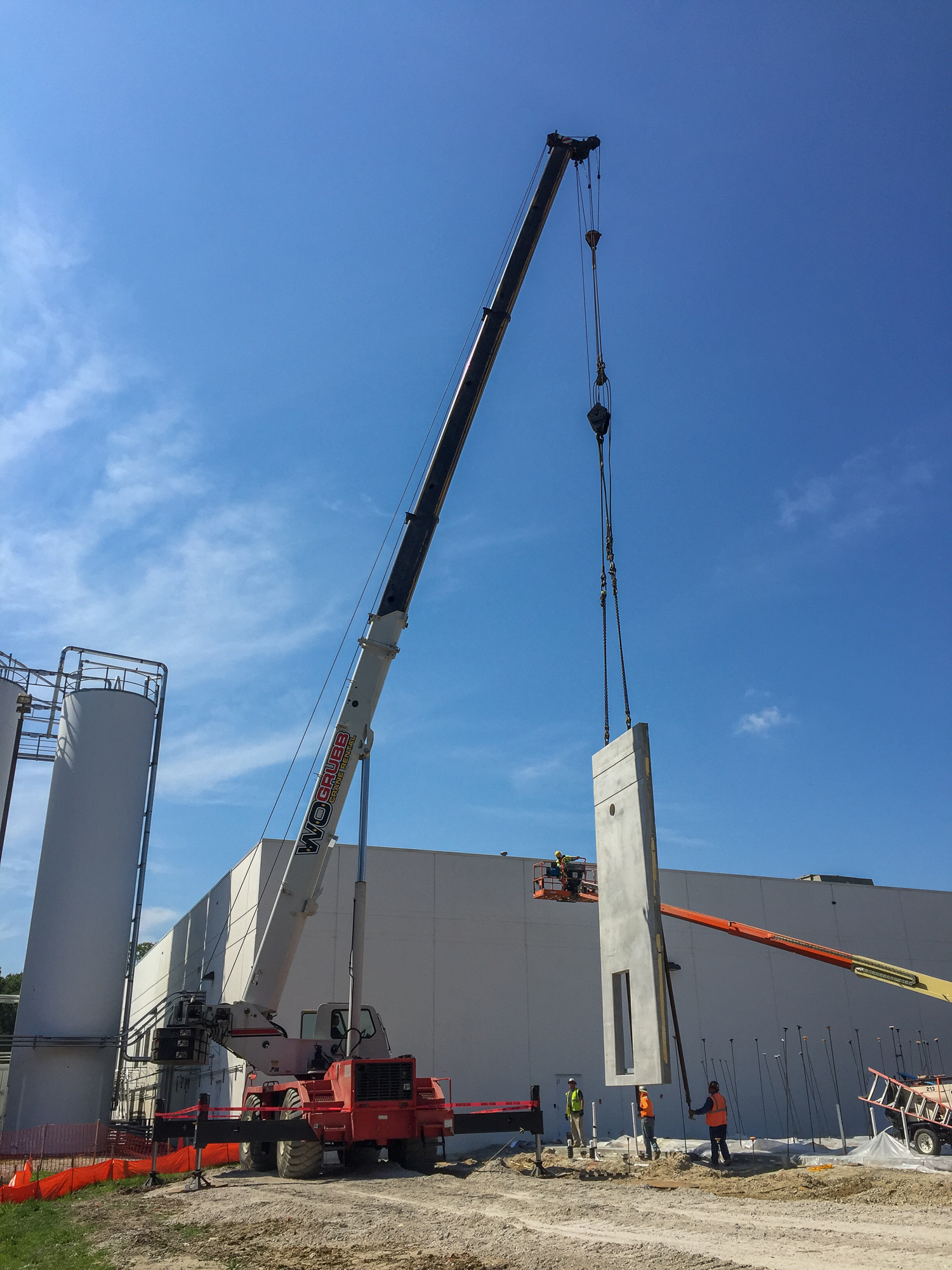This 150,000 SF plant expansion and addition included a 75,000 SF production area, a 75,000 SF warehouse space, a 7,500 SF office area, and the completion of a separate recapitalization program to advance equipment capabilities. Throughout the duration of the project, Printpack’s current plant and office remained operational.
Construction consisted of precast wall panels and flat floor slabs in the production areas and warehouse. The building also includes loading docks and dock equipment in the warehouse. In addition to a large sitework scope (clearing, grading, site utilities, truck access roads, etc. and complex MEP scopes, the project included an extensive stormwater management plan. At the time of this project, new state environmental standards had just been released. To meet these requirements, the site included a BPM pond with wetland plants.
The construction of the addition involved meticulous planning to allow the plant to remain operational. Tying in the expansion to the current plant required cutting large openings into the existing plant wall, which exposed the plant’s operations. To ensure the plant remained clean, safe, and operational, we carefully controlled this activity and installed temporary weather-tight partitions.
The project’s success was a testament to the benefit of a collaborative design-build approach. Early involvement of all parties, from design team members to subcontractors, allowed the team to combine their expertise to develop the best and most realistic plan for the project. We provided continuous communication and transparency throughout all phases of the project and coordinated daily with the plant management staff and leadership at their headquarters in Atlanta.
This expansion helped to bolster Printpack’s rigid division. Printpack Rigid—founded over 30 years ago in Virginia—pioneered rigid barrier containers, creating shelf-stable packaging that offers convenience and preservation of foods in a consumer-friendly format. The division originated Solid Phase Pressure Forming (SPPF), revolutionizing the market by allowing products such as applesauce and diced fruit to convert from cans to plastic.



